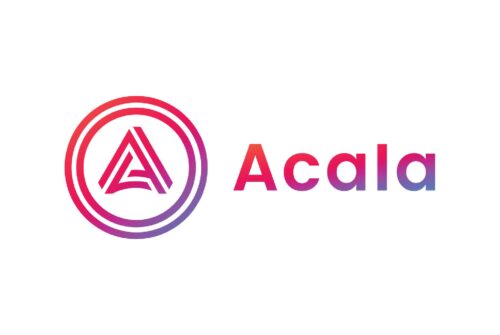
Last year El Salvador dominated headlines as the first country to adopt Bitcoin as legal tender. Now, it’s time to promote mainstream adoption from the ground up.
Last year, El Salvador dominated headlines as the first country to adopt Bitcoin as legal tender. The move is controversial both in and outside of the country, heralded for its potential to bring financial services to large portions of El Salvador’s unbanked population and criticized for its top-down implementation. This has created a sense of uncertainty and made some Salvadorans feel they lacked a choice, despite locations like El Zonte already accepting Bitcoin (BTC) as payment through organic developments that predate the law.
These arguments, while for and against the law, don’t actually exist in contradiction to one another. While the decision may have been made by the government, it is bringing financial services to new portions of the population. Not all governments, however, are interested in declaring Bitcoin a legal tender, leaving us to consider a new question: How can we encourage crypto adoption in emerging markets like El Salvador without involving governments?
Banking the unbanked in Latin America
In August of 2021, the World Bank reported that nearly half of the Latin American and Caribbean (LAC) population were unbanked, meaning that they had no access to a bank account or other financial services. These unbanked individuals cited the cost of maintaining an account, distance from financial institutions, lack of necessary documentation and lack of trust as among the most common reasons for remaining unbanked.

Being unbanked poses major challenges, making it difficult for individuals to safely receive payments, save money, transfer funds outside of their communities or access credit and their credit scores. In short, being unbanked can make it nearly impossible for individuals to perform the daily financial transactions that many of us take for granted.
Cryptocurrencies are changing that by helping individuals access online financial services like savings applications, lending platforms and even micro-insurance solutions from their mobile devices with far fewer hurdles and for lower fees than traditional financial institutions demand. It’s these three characteristics of cryptocurrencies — accessibility, affordability and anonymity — that make Bitcoin an appealing option for banking the unbanked in countries like El Salvador.
Understanding government intervention
It’s important, however, to make the distinction between impact and implementation. While mass adoption of cryptocurrencies like Bitcoin can have a profoundly positive impact on unbanked populations, offering a new alternative for accessing vital financial services will bring forth more than a few ways to encourage that adoption.
El Salvador chose government intervention, implementing Bitcoin as a legal tender as part of a larger strategy to move El Salvador out of poverty. In fact, the government itself even chose to invest its reserves in Bitcoin, taking on the risk of volatility in favor of the potential earnings and keeping its promise to support building infrastructures like schools and public facilities across the country.
Reenvisioning mainstream adoption
However, government intervention isn’t the only option. As many governments across Latin America express their disinterest in accepting Bitcoin as legal tender, we’re beginning to envision alternative options for encouraging mainstream adoption from a more grassroots perspective. In my mind, there are five key factors that we must consider: mobile access, education, financial barriers, institutional adoption and Bitcoin alternatives.
Promoting mobile accessibility
For the mass adoption of cryptocurrencies to take root, financial technology companies involved in the crypto space must offer mobile-friendly solutions to users. In Latin America and the Caribbean, less than 50% of the population has fixed broadband connectivity, and only 9.9% has high-quality fiber connectivity at home, while 87% of the population lives within the range of a 4G signal. That’s a 37% increase in the number of individuals able to access financial services when they’re made available on mobile devices. If fintechs can create financial solutions for mobile phones, they can make it more convenient and intuitive for new users to engage with this novel technology.

Offering educational services
While mobile-friendly crypto offerings are already becoming the norm across the crypto space, education is another key consideration. Without a proper understanding of what cryptocurrency is and how it works, individuals cannot be expected to trust the technology or use it safely. Lack of trust was among the major reasons individuals cited for being unbanked.
Fintechs can overcome that barrier and foster trust in cryptocurrencies by developing transparent educational programs designed to show users what cryptocurrencies are and how they can benefit from the technology. Programs such as Rabbithole are even taking that education a step further by incentivizing learning through learn-to-earn programs that reward users for learning to participate in decentralized applications (DApps). When that education is successful, it can move beyond building trust and inspire communities to build on top of preexisting technologies, adapting it to meet their needs and bringing even more users into the space.
Breaking financial barriers
Of course, to begin transacting at all — be it through traditional or technical financial services — users must have basic funds. Universal basic income (UBI) initiatives can be especially effective in encouraging digital currency adoption by providing essential resources (i.e. income). ImpactMarket is currently leading the way for UBI in the blockchain space, allowing for the creation and distribution of unconditional basic income between communities and their beneficiaries through its decentralized poverty alleviation protocol. When funds are sent as digital assets through mobile-friendly education-oriented platforms, they encourage users to adopt the technology without forcing use upon individuals.
Encouraging institutional adoption
The final piece of this puzzle is institutional adoption. UBI, education and mobile access will only get new users, especially otherwise unbanked individuals, so far if they cannot see opportunities to transact using digital currencies in everyday life. Groups like CARE and the Grameen Foundation are already incorporating blockchain technology into their transactions by using cryptocurrencies to provide aid in Ecuador and the Philippines, respectively. When institutions use cryptocurrencies to effect positive change, they inspire new trust in the technology while making funds available to vulnerable populations.
Branching out from Bitcoin
Bitcoin’s popularity and El Salvador’s move to adopt the cryptocurrency as legal tender should be viewed as an endorsement for cryptocurrency more broadly. Bitcoin isn’t the only cryptocurrency capable of bringing financial services to unbanked individuals across the world. Other cryptocurrencies offer lower gas fees and smaller environmental impacts. While stablecoins serve as a safe alternative to Bitcoin’s price volatility.
It is worth considering how a variety of cryptocurrencies and stablecoins with varied benefits like fast transaction speeds, low gas fees and price stability, could be combined to offer individuals more accessible and affordable financial services.
Think local
El Salvador’s decision to implement Bitcoin as a legal tender may have emerged in recognition of cryptocurrencies’ potential to benefit huge portions of the country’s population, but we cannot expect all countries to follow in its footsteps.
Fintech companies entering emerging markets in Latin America and beyond must consider alternative grassroots strategies for encouraging crypto adoption — mobile accessibility, education, access to funding, institutional adoption and Bitcoin alternatives will be key to encouraging mass adoption of cryptocurrencies in emerging markets without involving governments.
To make these changes, it’s important to think local rather than global. How can we tailor programs to meet these five needs to smaller communities across the globe, helping individuals access digital currencies and financial technologies that meet their distinct and diverse needs?





